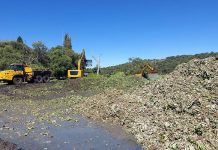Today and tomorrow, a delegation of officials from the department, led by Minister Gugile Nkwinti, will attend a National Reference Group (NAREG) meeting with representatives of organised agriculture, civil society members as well as academics and experts on land and agrarian issues.
They will discuss the policy framework for land acquisition and land valuation and for the establishment of the Office of the Valuer-General. This will be an extension of the on-going Green Paper process that’s been guided by NAREG since Nkwinti established the group to ensure discussions around the Green Paper on Land Reform followed an inclusive, consultative approach.
The draft policy framework under discussion suggests that the Office of the Valuer-General will serve as a mechanism that will allow the state to actively intervene in the land market.
In his state of the nation address, President Jacob Zuma said that government plans to speed up land redistribution by doing away with the ‘willing buyer, willing seller’ principle in favour of the ‘just and equitable’ principle for compensation. He said the ‘willing buyer, willing seller’ principle forces the state to pay more for land than the actual value.
According to the Green Paper, the Valuer-General will be a statutory office responsible for the provision of fair and consistent land values and for determining financial compensation in cases of land expropriation.
Yesterday, TAU SA president Louis Meintjes announced that the union has suspended participation in further discussions regarding the Green Paper and won’t be attending the NAREG meeting scheduled for 15 and 16 February.
He said the process followed to date has been misleading and that organisations such as TAU SA have been only used give the process ‘legitimacy’ – their submissions on the Green Paper were never seriously considered.
Meintjies also accused the minister and his department of changing meeting agendas on short notice which resulted in meetings becoming work sessions dealing with issues which have already been discussed in the various work streams.













